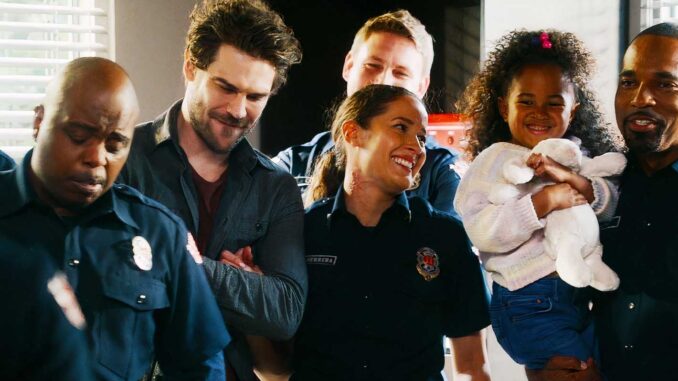
The Real Reason Station 19 Season 8 Never Came to Life
The news hit the fanbase like a sudden, unexpected inferno, leaving a landscape of scorched hopes and lingering questions: Station 19 was ending after its seventh season. For a show that consistently delivered heart-stopping drama, poignant character development, and unflinching social commentary, the decision felt not just premature, but perplexing. On the surface, the whispers cited "creative conclusions" or the natural arc of a story. But beneath these polite euphemisms, the real reason Station 19 Season 8 never came to life was a complex, multi-layered confluence of shifting industry economics, evolving network strategies, and perhaps, the very boldness of its progressive voice in an increasingly cautious broadcast landscape.
Firstly, and perhaps most fundamentally, the economic headwinds buffeting the entire television industry played an undeniable role. As a long-running series, Station 19 was, by its seventh season, an expensive endeavor. Actor salaries escalate with each new contract, production costs for a large ensemble and the intricate demands of a firehouse drama are substantial, and the overall price tag for a hit show grows exponentially over time. In an era where legacy media conglomerates like Disney (ABC's parent company) are grappling with streaming losses, cord-cutting, and a general tightening of the purse strings, an established, high-cost series becomes an obvious target for cost-cutting measures. The promise of an eighth season, with its inevitable increase in financial commitment, likely became an unpalatable prospect when viewed through the cold, hard lens of quarterly earnings reports and shareholder expectations. It wasn't that Station 19 wasn't performing; it was that the cost-to-return ratio for an established broadcast drama was no longer aligning with a lean, efficiency-driven corporate strategy.
Hand-in-hand with this financial calculus was the seismic shift in network strategy, particularly within Disney's ecosystem. Broadcast television, once the undisputed king, is now struggling to retain its relevance in the streaming age. Viewership habits have dramatically changed, with a significant portion of audiences gravitating towards on-demand platforms. For Disney, this meant a strategic pivot towards strengthening its own streaming services, primarily Hulu and Disney+. Shows like Station 19, while performing solidly for ABC, likely didn't fit neatly into the long-term vision of content consolidation or the analytics-driven commissioning of new projects designed to attract streaming subscribers. The intricate web of streaming rights, international licensing, and the desire to shepherd audiences onto proprietary platforms means that even popular shows might be deemed less valuable to keep on a traditional network if they don't serve a broader, overarching corporate streaming goal. The "live" broadcast numbers, while still respectable, simply aren't the sole metric of success they once were.
Finally, and perhaps most subtly, the very heart and soul of Station 19 – its unwavering commitment to social justice and its willingness to tackle complex, often uncomfortable societal issues – might have played a quiet, unintended role in its demise. From its earliest seasons, Station 19 boldly confronted systemic racism, police brutality, mental health stigma, LGBTQ+ rights, and the intricacies of trauma with a candor rarely seen on network television. It often held an uncomfortable mirror up to American society, demanding introspection and empathy. While this authenticity resonated deeply with its dedicated fanbase and garnered critical acclaim, it also positioned the show as a potent, sometimes challenging, voice. In a television landscape where some networks are increasingly seeking "safe," broadly appealing content to avoid potential controversy or to attract the widest possible, least-polarized audience, Station 19's progressive stance, ironically, might have become a quiet liability. It wasn't that the message was "wrong," but rather that an expensive show with a strong, specific socio-political viewpoint might be seen as less universally marketable or more prone to alienating segments of the viewership that a major broadcast network seeks to capture in a cost-cutting climate.
In the end, Station 19 Season 8 never came to life not because of a sudden creative misstep or a catastrophic ratings plummet, but because it became a casualty of a larger war: the battle for economic solvency in a rapidly changing media landscape. It was a well-loved, well-made show caught in the crosshairs of soaring production costs, a strategic pivot towards streaming, and perhaps, the quiet discomfort its powerful, progressive narratives created for a network seeking broader, less challenging appeal. The station may have closed its doors, but the echoes of its important conversations, its vibrant characters, and its unwavering flame of hope will continue to burn brightly in the hearts of its devoted audience.